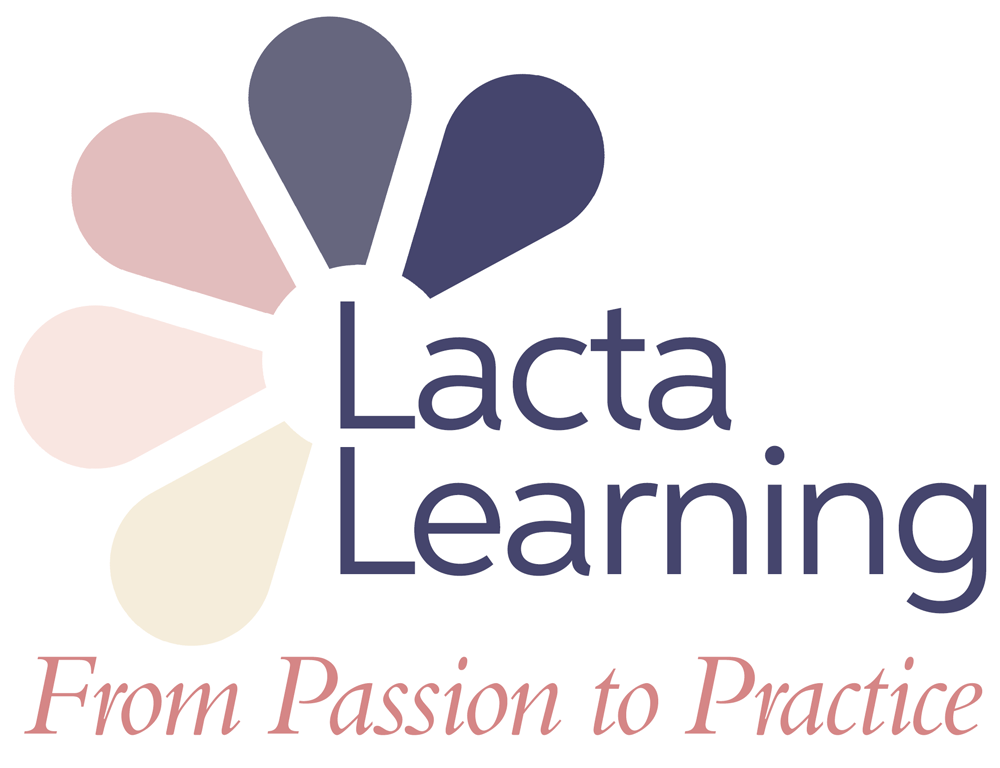How to Become an IBCLC
Note: These are Barbara’s interpretations of the IBLCE website about how to become an IBCLC in an attempt to try and clarify this process.
Want to know more about becoming an IBCLC or our 95 hour professional lactation course, the CCLS? Contact us or email barbara@lactalearning.com for more information or join us for a live Zoom meeting, How to Become an IBCLC on Monday, July 28 at 7 PM EST. The meeting takes about 45 minutes. Just tell us what you need!
Here is a video of a Zoom meeting so you can get more information. The video is about 40 minutes total.
What is International Board of Lactation Consultant Examiners (IBLCE)?
IBLCE, or the International Board of Lactation Consultant Examiners, is the independent international certification body conferring the International Board Certified Lactation Consultant (IBCLC) credential.
What is ILCA or USLCA?
ILCA stands for International Lactation Consultant Association. It is the international professional organization for IBCLCs. USLCA, the United States Lactation Consultant Association is the national organization for IBCLCs.
 What is an IBCLC?
What is an IBCLC?
International Board Certified Lactation Consultants (IBCLCs) function and contribute as members of the maternal-child health team. They provide care in a variety of settings, while making appropriate referrals to other health professionals and community support resources. Working together with mothers, families, policymakers and society, IBCLCs provide expert breastfeeding and lactation care, promote changes that support breastfeeding and help reduce the risks of not breastfeeding.
How to become an IBCLC
The International Board of Lactation Consultant Examiners (IBLCE) defines the standards for IBCLC certification. These standards include:
- Prerequisite education in the health sciences
- Clinical experience in providing care to breastfeeding families-Deciding on which pathway
- Education in human lactation and breastfeeding
- Sign a pledge to adhere to the Professional Code of Conduct
- Passing a professionally developed certification examination
Let’s look at each of these areas.
The IBLCE Board of Directors has specified 14 subjects in which all candidates for the IBCLC certification exam must complete courses of study.
- All General Education requirements must be completed prior to applying for the IBCLC certification examination.
- The General Education requirements include 8 higher education subjects and 6 continuing education
At least one course in eight (8) higher education subjects is required. Higher education is defined as education acquired after completion of compulsory education. It is typically provided at academies, universities, colleges, vocational schools, institutes of technology, trade schools and career colleges that award academic degrees or professional credentials.
- Candidates must have a passing grade in each course.
- Each course must be at least one academic term in length and completed at an accredited institution of higher learning.
- Academic term varies from school to school. Semesters, trimesters, quarters and “mini-mesters” are all acceptable academic terms.
- There is no time limit on this education. It is acceptable if it was completed some time ago.
- This coursework may be completed as in-person classroom education or through distance learning methods such as on-line courses.
- These Courses are:
- Biology
- Human Anatomy
- Human Physiology
Important note: Human Biology can fulfill Biology, Human Anatomy, and Human Physiology!!!
- Infant and Child Growth and Development
- Nutrition
- Psychology or Counseling or Communication Skills
- Introduction to Research
- Sociology or Cultural Sensitivity or Cultural Anthropology
Courses in the additional 6 topics are most typically available as non-credit, continuing education courses of varying length. IBLCE does not specify a certain number of instructional hours for these topics; therefore, courses of varying amounts of instructional time are acceptable.
- There is no time limit on when these courses must be completed. Courses completed some time ago will be accepted.
- Courses that combine more than one of the topics are acceptable.
- There is no time limit on this education. It is acceptable if it was completed some time ago.
- This coursework may be completed as in-person classroom education or through distance learning methods such as on-line courses.
- Basic Life Support (e. g. CPR)
- Medical Documentation
- Medical Terminology
- Occupational Safety and Security for Health Professionals
- Professional Ethics for Health Professionals
- Universal Safety Precautions and Infection Control
When applying for the IBLCE exam, individuals educated in the following health professions will be asked to identify their profession and submit a copy of their license, registration, diploma or transcript. Here is a list from the site. https://ibclc-commission.org/ibclc-information/recognised-health-professions-list/
- Dentist
- Dietitian
- Midwife
- Nurse
- Occupational Therapist
- Pharmacist
- Psychologist
- Physical Therapist or Physiotherapist
- Physician or Medical Doctor
- Speech Pathologist or Therapist
Individuals who are not educated in one of the above health professions will need to provide transcripts and certificates of completion for the General Education courses. For more information about the General Education requirements, please consult https://ibclc-commission.org/step-1-prepare-for-ibclc-certification/health-sciences-education-2/
-
Clinical experience in providing care to breastfeeding families-Deciding on which PATHWAY
The 3 exam eligibility pathways are open to individuals from a variety of backgrounds. Each person must decide which pathway will work best for them. For more info, go here: https://ibclc-commission.org/step-1-prepare-for-ibclc-certification/lactation-specific-clinical-experience/
Pathway 1 involves using appropriately supervised clinical experience obtained through paid employment or volunteer service as a health professional or mother support counselor. The kind of supervision that is considered appropriate depends upon the candidate’s professional background and scope of practice.
Under Pathway 2 and Pathway 3, the candidate completes clinical practice in lactation care under the direct supervision of experienced IBCLCs. Individuals with no paid or volunteer experience in providing care to breastfeeding families or those who desire a more structured way of learning lactation care clinical skills may choose to follow one of these pathways.
Pathway 1
Many candidates use clinical practice they have obtained through paid employment or volunteer service to qualify for the IBCLC certification exam. If you fall into one of the following categories, Pathway 1 is a reasonable choice to make.
- Your current work or volunteer service includes providing care to breastfeeding families.
- In the past 5 years, you worked or volunteered in a position in which you provided care to breastfeeding families.
- Employment or volunteer experience in a position in which you will provide care to breastfeeding families is something you can reasonably expect to obtain.
Pathway 1 candidates must complete the following minimum requirements.
| General Education in the Health Sciences | 14 subjects |
| Education in Human Lactation and Breastfeeding | 95 hours |
| Clinical Practice Experience in Lactation and Breastfeeding Care | 1000 hours |
The General Education requirements must be completed prior to applying for the IBCLC certification exam. You must evaluate the higher education that you have already completed and determine whether or not additional coursework is needed.
Education in human lactation and breastfeeding is available through various education providers. The required minimum of 90 hours in lactation education must be completed within the 5 years immediately prior to applying for the IBCLC certification examination.
Pathway 1 candidates must complete at least 1000 hours of clinical practice experience in lactation care that were accrued in the 5 years immediately prior to applying for the IBCLC certification exam.
- Clinical practice may be obtained through paid employment or volunteer service in a variety of settings such as hospitals, clinics, birthing centers, medical practices, public health departments and mother support counselor organizations.
- Appropriate supervision of your clinical practice in lactation care is required. Providing breastfeeding support to family and friends and/or in a setting without appropriate supervision may not be used to qualify for the IBCLC certification examination.
Individuals from two types of backgrounds are eligible under Pathway 1.
Health Professionals: Nurses, midwives, physicians and dieticians working in maternal-child care are the health professionals who most often seek IBCLC certification through Pathway 1.
- Unless independent practice is permitted by their scope of practice, health professionals are expected to obtain their clinical experience in the same location in which their supervisor works.
- Please note that you must possess the legal authority to practice as a health professional in the country, state or province in which your lactation care experience occurred.
Mother Support Counselors: Accredited mother-to-mother breastfeeding support counselors and breastfeeding peer counselors are among the mother support counselors who may use their experience to qualify through Pathway 1.
- To qualify as a mother support counselor, you must volunteer with or be employed by an organization that requires its counselors to:
- Complete a structured training program that includes comprehensive education in breastfeeding management.
- Work within a supervision structure that is appropriate to their training.
- Adhere to defined ethical standards for conduct.
- Remain up to date by participating in continuing education.
- Volunteer mother support group counselors must report to their appointed organizational supervisor and they receive credit for 500 clinical practice hours for each year of active volunteer service.
- Mother support counselors who are not accredited volunteers must be supervised by an IBCLC or health professional who works in the same location where the mother support counselor works.
For assistance in determining if you have sufficient clinical practice hours in lactation care to qualify through Pathway 1, use the Lactation Specific Clinical Practice Calculator found on this page.
Pathway 2
Within the 5 years immediately prior to applying for the IBCLC certification examination, individuals seeking qualification through Pathway 2 must graduate from an academic program in human lactation and breastfeeding that meets all of the following requirements established by IBLCE.
- The program must be offered at an accredited academic institution and the program director must be a recertified IBCLC.
- Students must complete a curriculum that includes all of the following:
- Completion of the General Education requirements either prior to enrollment or concurrent with the other academic requirements
- At least 90 hours of instruction in human lactation and breastfeeding
- A minimum of 300 hours of clinical practice experience in lactation care that were directly supervised by International Board Certified Lactation Consultants who report to the academic program director
Currently, there are 4 academic programs worldwide that meet the above requirements. Each academic program has unique admission and graduation requirements; no two programs are exactly alike. You may contact the academic institutions for more information about their requirements. This list is provided for the convenience of visitors to the IBLCE website. IBLCE does not recommend or endorse these academic programs.
Pathway 3
Individuals seeking qualification through Pathway 3 must have an approved Pathway 3 Plan on file with IBLCE. This mentorship plan must be developed according to the specifications found in https://ibclc-commission.org/ibclc-information/pathway-3-plan-guide/ and must be approved by IBLCE prior to beginning the mentorship.
The following table describes the minimum requirements for a Pathway 3 mentorship.
| Approved Pathway 3 Plan | On file with IBLCE |
| General Education in the Health Sciences | 14 subjects |
| Education in Human Lactation and Breastfeeding | 90 hours |
| Clinical Practice Experience in Lactation and Breastfeeding Care | 500 directly supervised hours |
Pathway 3 was designed for individuals who have little or no opportunity to obtain clinical experience in lactation care through their paid or volunteer employment and/or those who do not have access to an academic program in human lactation and breastfeeding. The first step toward qualification for the IBCLC certification examination through Pathway 3 is to develop and submit a mentorship plan to IBLCE. Details about Pathway 3 Plan development can be found in https://ibclc-commission.org/ibclc-information/pathway-3-plan-guide/
The General Education requirements must be completed prior to applying for the IBCLC certification exam. Pathway 3 candidates must evaluate the higher education that they have already completed and determine whether or not additional coursework is need.
Education in human lactation and breastfeeding is available through a number of education providers. The required minimum of 90 hours in lactation education must be completed within the 5 years immediately prior to applying for the IBCLC certification examination.
Pathway 3 requires a minimum of 500 hours of clinical experience in lactation care that were directly supervised by experienced IBCLCs and accrued within the 5 years immediately prior to applying for the IBCLC certification examination.
 If you are considering Pathway 3, you must locate and contract with one or more IBCLCs who have recertified at least once. These IBCLCs will serve as your mentors and will provide the direct supervision of your clinical practice in lactation care.
If you are considering Pathway 3, you must locate and contract with one or more IBCLCs who have recertified at least once. These IBCLCs will serve as your mentors and will provide the direct supervision of your clinical practice in lactation care.
- Education in human lactation and breastfeeding- We offer this online! Check it out!
All candidates for the IBCLC certification examination must complete at least 95 hours of education in human lactation and breastfeeding. The required lactation education must be completed within the 5 years immediately prior to applying for the IBCLC certification examination.
Lactation education may be completed in a variety of ways, including in-person presentations, online education, distance learning and independent study modules.
Our sister site, LactaLearning, offers this educational opportunity!
4. Sign a pledge that you will adhere to the professional code of conduct
5. Passing a professionally developed certification examination
You must have your application and materials submitted to IBLCE by these dates. These dates change and the earlier you apply for the exam, the cheaper it is. The exam roughly costs $660.00 as of 2024 depending on how early you turn in your materials.
The skills in the https://ibclc-commission.org/2018/12/17/revisions-to-ibclc-scope-of-practice-and-clinical-competencies/sections are discussed and are representative of the ways in which IBCLCs apply this knowledge to clinical situations.
IBLCE Detailed Content Outline
All exam questions have both Discipline and Chronological parameters. This Detailed Content Outline gives you exactly the breadth of information you need to know for the exam.
